Indigenous Women Transform Cereals into Economic Autonomy and Hope

Nariño, June 5, 2025
From the Fundación Impulso Verde, in alliance with the RAJA Foundation and the NGO Humy, we have been promoting productive solutions that strengthen the economic autonomy of indigenous women in the southern Andes of Colombia.
The process led by the foundation integrates innovation, female leadership, and sustainability with a deep appreciation of ancestral cultural practices. Using traditional knowledge and historical crops such as wheat, barley, corn, and quinoa, organized communities have managed to transform these cereals into value-added products such as pasta, bread, flour, and healthy cookies that not only promote food sovereignty but also open new income opportunities for rural families.
“We are 42 partners in the Association of Women Entrepreneurs. We like wheat and corn because they are part of our diet, of our identity,” says Mercedes Narváez, one of the leaders of the process. “With this alliance, we plant not only trees but also dignity and solidarity in our community.”
One of the main innovations has been the strengthening of technical and organizational capacities through training, support, and the promotion of a solidarity network. Female empowerment has become one of the most significant achievements of the project: “Today, women lead production, marketing, and decision-making in their communities, strengthening their self-esteem and their role within the social fabric,” says Tatiana Hernández, coordinator of green businesses at Impulso Verde.

“We have been working as an association for 14 years. We were born in the midst of armed conflict, but now we live in peace. We appreciate the support for believing in us, for transforming pain into life, and for planting a seed of hope,” shares Mercedes.
The productive process starts with the cultivation of cereals on their own plots: “First, we plant the barley, then it is toasted, ground, sifted, and from there we prepare the soup,” says Mercedes proudly. This complete chain allows the value to remain in the hands of the communities, favoring the local economy and sustainable agroecological practices.
For Impulso Verde, this experience is an example of how working in alliance can open paths towards a more resilient and peaceful future.
Communications Fundación Impulso Verde







